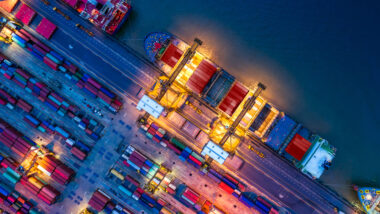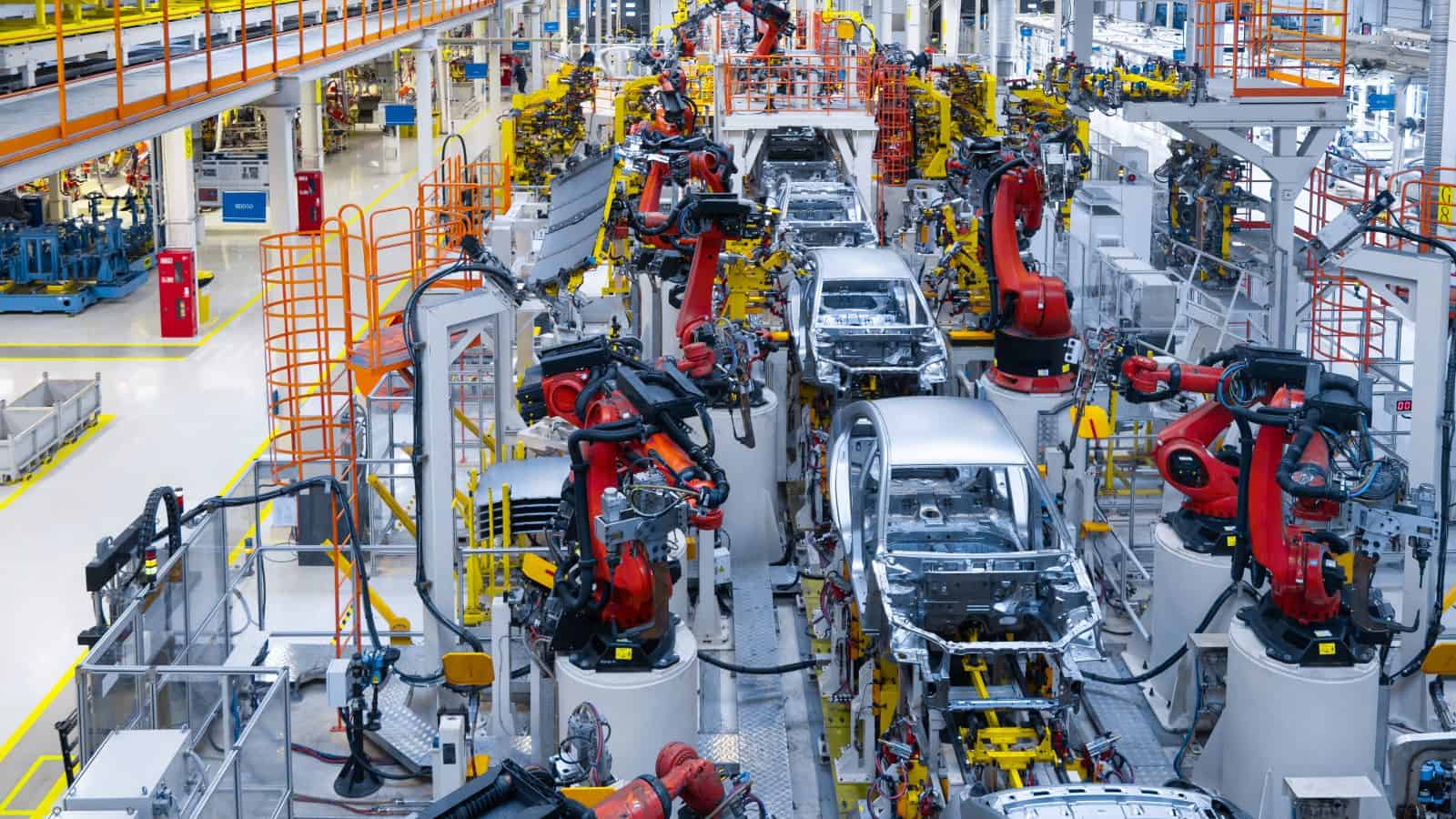Enhancing and Demonstrating Environmental Stewardship
Supply Chain Control Tower Solutions for Sustainability

Nothing tests the resiliency of supply chains like a global pandemic — as everyone from CEOs to consumers desperately seeking toilet paper know all too well. And, as the COVID-19 pandemic so vividly demonstrated, organizations around the globe need help in monitoring and strengthening their supply chains.
But all organizations — and multinational corporations, in particular — must also be concerned about the sustainability standards of their supply chains. Issues such as climate change, fair labor practices and environmental impacts must be considered along with issues affecting supply chain resiliency. Yes, focusing on these issues is the right thing to do. But increasingly, ensuring supply chain sustainability standards is also essential to maintaining competitiveness and market share. A recent Deloitte survey1 found that nearly a third of consumers have abandoned a brand or product because of concerns about sustainability or ethics. Nearly half of consumers want more insights into the sourcing of products and impacts to sustainability.
So, modern consumers indeed want to find toilet paper fully stocked on the store shelves. But they also expect that product, and all products, to have been produced and sourced sustainably and ethically.
The big ask
Maintaining supply chain viability, especially in recent times, can be pretty challenging. Adding the task of ensuring and demonstrating that all the many supply and labor sources that feed into that chain meet modern sustainability standards — well, that’s a big ask. But that’s the task that’s faced by enterprises that seek to remain competitive.
It’s not an easy task. And some of the biggest brand names on the planet have made some embarrassing stumbles in attempting to ensure the sustainability and ethics of their suppliers. Some suppliers were cited for violating worker safety conventions and fair labor practices. Others were found to have dumped toxic chemicals into rivers that serve as the source of drinking water for millions of people.
Enterprises need help in successfully monitoring all of the many streams and tributaries that flow into a typical modern supply chain. They need a high-level focus that provides oversight of all supply routes and suppliers — they need a control-tower view.
A control tower solution for supply chain sustainability
Hitachi has developed supply chain control tower solutions explicitly designed for monitoring and managing the complexity of modern supply chains. Powered by Hitachi’s Lumada Manufacturing Insights, these solutions integrate process monitoring, data collection from Internet of Things (IoT) sensors and satellites, historical records and predictive algorithms to provide alerts about potential disruptions.
According to the Association for Supply Chain Management, more than half of all companies lack complete visibility into their supply chains, leaving them vulnerable to disruptions.2 Hitachi’s supply chain control tower solutions offer enterprises a paradigm shift in supply chain management: predicting the future of the supply chain rather than simply reacting to disruptions as they occur.
But Hitachi’s supply chain control tower solutions can go far beyond simply helping to keep a supply chain intact. These solutions can also be used for effectively monitoring, managing and demonstrating the sustainability of supply lines, from beginning to end — as the following ongoing Hitachi pilot project demonstrates.
Supply chain sustainability safeguards one of the seven natural wonders of the world
Australia’s Great Barrier Reef is the largest coral reef on the planet and is counted as one of the world’s seven natural wonders. But the majestic beauty of the Great Barrier Reef is sustained by a fragile ecosystem. And in just the past three decades, that delicate ecosystem has been pummeled by a combination of climate change fallout and damage from pollutants. Much of the pollution that affects the reef originates from agriculture.
Recently, Hitachi and Horticulture Innovation Australia teamed up on a project that utilizes Hitachi’s supply chain control tower technologies to help enhance the environmental stewardship of farmers in the Great Barrier Reef catchment area. The project encompasses four remotely monitored farms growing nursery, vegetable, macadamia and banana crops. The project’s goal is to use digital dashboards to enhance sustainability efforts by helping the farms produce more with less waste and increase their compliance with governmental directives.
This project will demonstrate the viability of both managing and monitoring even the most remote endpoints of a supply chain using Hitachi’s data-driven control tower technologies. The project is expected to enhance supply chain sustainability and resiliency while providing the product-source transparency that has become so vital to modern consumers.
Supply chain sustainability is now an imperative
Not so long ago, any enterprise efforts toward ensuring increased supply chain sustainability were worth a virtual pat on the head — and not much more. But that’s no longer true. Increasingly, maintaining goodwill in the eyes of stakeholders and consumers requires that supply chains be both resilient and sustainable. Enterprises that manage to do both enjoy a competitive edge that far transcends the ability to simply keep toilet paper on store shelves.
Discover how Hitachi’s supply chain control tower solutions can help you keep your supply chain intact while providing the sustainability that consumers demand.
About the author:
 Owen Keates, Industry Executive, Manufacturing Practice, Hitachi Vantara
Owen Keates, Industry Executive, Manufacturing Practice, Hitachi Vantara
Keates leads the development of Hitachi Vantara’s digital supply chain solutions. With over 25 years of experience in supply chain management including global supply chain manager of a logistics company and vice president of a supply chain consultancy, he has led many digital transformation programs across a range of industries from beverages and agri-food to transformer, motor, construction, vehicle assembly as well as chemical and paper manufacturing. Qualified as a chemical engineer, Keates has production, project and executive management experience in manufacturing and is currently completing a part-time Ph.D. in process intelligence.
1 – “Shifting sands: Are consumers still embracing sustainability?” Deloitte, 2021, https://www2.deloitte.com/uk/en/pages/consumer-business/articles/sustainable-consumer.html
2 – “Over Half of Companies Lack Clear Picture of Their Own Supply Chain, According to New Report from ASCM and the Economist Intelligence Unit,” Association for Supply Chain Management, February 23, 2021, https://www.prnewswire.com/news-releases/over-half-of-companies-lack-clear-picture-of-their-own-supply-chain-according-to-new-report-from-ascm-and-the-economist-intelligence-unit-301233340.html
